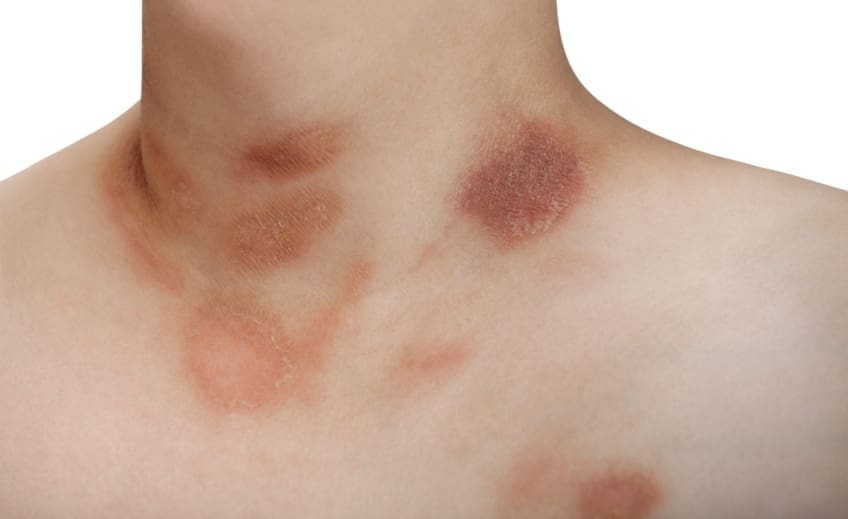
What is pityriasis rosea?
Pityriasis rosea is a scaly, reddish-pink skin rash. It is most common in people between the ages of 10 and 35 years old.
Symptoms of pityriasis rosea
In most cases, pityriasis rosea begins with cold-like symptoms. These may include sore throat, fever, aches, nausea, and fatigue. Then, a single, large spot may appear on your chest, stomach, or back. This is called a “herald patch” or “mother patch.” It has a raised border and hollow center. Smaller spots will continue to appear in the same area. The spots may be red, scaly, and itchy.
What causes pityriasis rosea?
Doctors don’t know the exact cause of pityriasis rosea. Some doctors believe that a viral infection can cause it. Certain medicines may also be the cause. Pityriasis rosea is not contagious, so people who have this rash cannot spread it to others.
How is pityriasis rosea diagnosed?
Pityriasis rosea can look like other common skin rashes. Examples are eczema, ringworm, and psoriasis. Your doctor will look for a herald patch and review your symptoms. They may do a blood test or skin biopsy to rule out other issues.
Can pityriasis rosea be prevented or avoided?
You cannot prevent or avoid this condition.
Pityriasis rosea treatment
Treatment cannot cure pityriasis rosea, but medicine can help relieve the itching. Your doctor may suggest antihistamine pills, such as Benadryl. Steroid cream, calamine lotion, or zinc oxide cream can also relieve the itching. Some people may need to take steroid pills to clear up their rash.
Let your doctor know if you are pregnant. This may affect your treatment options and require more in-depth monitoring.
Living with pityriasis rosea
In most cases, pityriasis rosea goes away on its own and does not come back. It could last 1 to 3 months. Heat can worsen the rash and itching. Try to avoid hot water and temperatures.
Contact your doctor if the rash lasts longer than 3 months.
Questions to ask your doctor
- What is causing my rash?
- What treatment is best for me?
- How long do I need to take drgus or use cream?
- Is there anything else I can do to relieve my symptoms?
- How long will the rash last and will it come back?
![]()
Copyright © American Academy of Family Physicians
This information provides a general overview and may not apply to everyone. Talk to your family doctor to find out if this information applies to you and to get more information on this subject.









